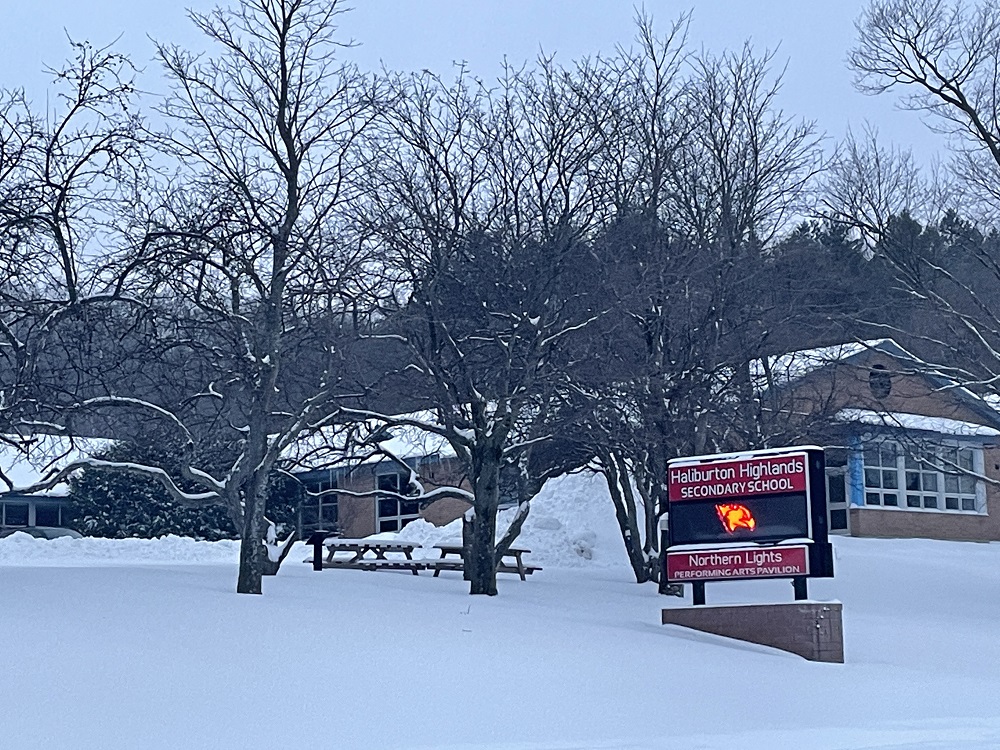New screening measures
Students across Trillium Lakelands District School Board (TLDSB) are having to adhere to more stringent COVID-19 screening measures since returning to school.
Director of education Wes Hahn told a Jan. 11 board meeting new testing was necessary as health units are no longer collecting or reporting COVID data and cases as of Jan. 17.
“The message we have for families, staff and students is, if you have any symptoms do not attend school,” Hahn said.
He said it could lead to problems if significant staff absences force classrooms, or entire schools, to revert back to virtual learning temporarily.
Paul Goldring, superintendent of learning, said the new tool is more detailed than previous questionnaires. New regulations indicate all members of a household are required to isolate if another member is experiencing COVID symptoms, regardless of vaccination status.
“In the past, there was some leeway in terms of people being vaccinated, now that leeway is gone,” Goldring said. The screener is available at tldsb.ca/board/ covid19. It contains seven questions, and should be completed daily before a student leaves for school.
Extracurricular activities are also paused.
Goldring noted teachers are required to wear N95 masks, while “high quality” three-ply cloth masks are being made available to students. Additional HEPA filters have been distributed to schools to help improve air quality inside classrooms.
Regular semesters
Secondary students will return to regular semesters Feb. 7, Hahn said.
“We are completing the current quadmester, then aiming to revert back to our regular semestered system for high school students. Lockers will be made available when regular semesters resume,” Hahn said.
Trustee John Byrne questioned the decision saying the Omicron variant, considered more contagious than previous variants of concern, is an airborne virus and would spread much easier among students, especially if they’re moving around the school more frequently for additional classes. He also pointed to concerning data suggesting infants are more susceptible to sickness from Omicron.
“As of [Jan. 10], 61 children between the ages of zero and four were hospitalized. They represent the second largest age group, the other being people over 60. My concern is, unbeknownst to them, a student or a member of staff could take this home and infect an unvaccinated young person,” Byrne said.
Hahn said all data staff have studied suggest moving back to regular semesters. He added students weren’t cohorting and were gathering in large groups before the holidays, when Omicron was first starting, and it didn’t bring any major concerns.
“It’s a balancing between the safety and wellbeing versus what’s right for students and their learning,” Hahn said. “We know that, from a learning perspective [regular semesters], is the best situation for kids … we’re confident at this point we can move forward safely.”
Some numbers
Superintendent of human resources, Traci Hubbert said 92 per cent of staff are fully vaccinated.
“We have had a very positive uptick with staff vaccinations in recent weeks,” Hubbert told the board. A staff-only booster clinic in Lindsay Jan. 8 was well attended, she added.
Hubbert said TLDSB wasn’t running into issues finding supply teachers but there are contingency plans in the event new screening and isolation requirements leave the board shorthanded.
Jennifer Johnston, special education services with TLDSB, said 186 students whose needs could not be met virtually returned to in-person learning Jan. 10. This equated to approximately one per cent of TLDSB’s student body





